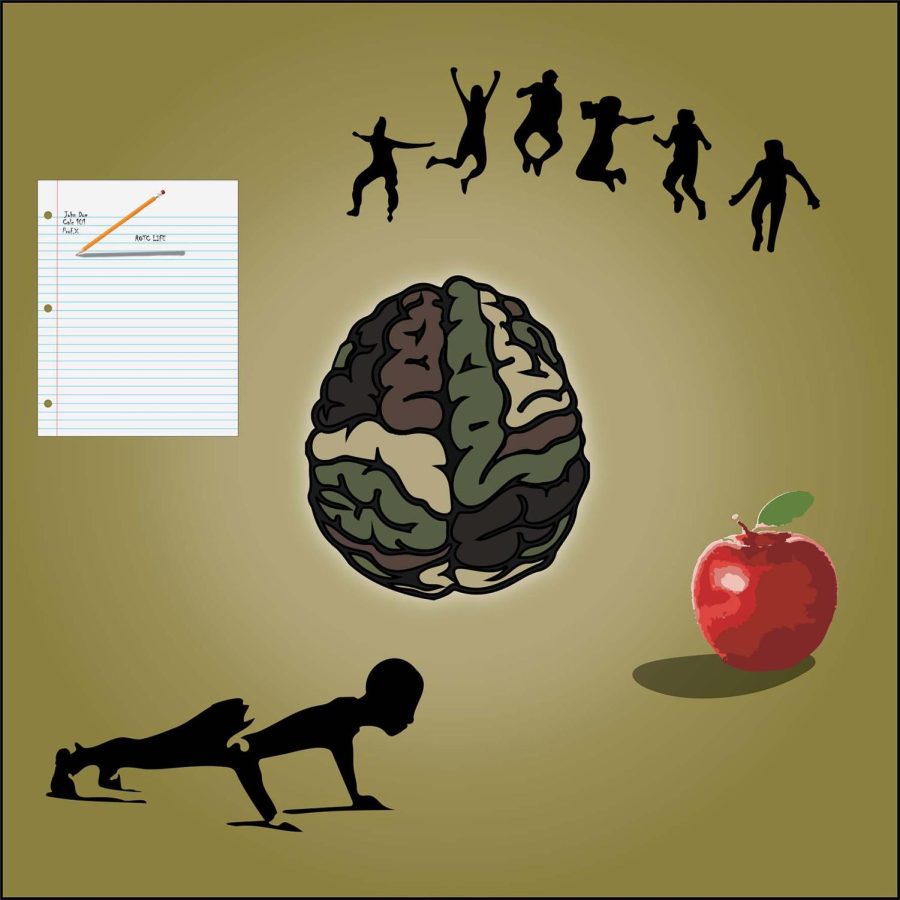ROTC members reflect on balancing mental health, academics
May 2, 2022
It’s five o’clock in the morning, and Neel Khattri’s alarm goes off. Khattri, junior in Engineering, gets out of bed, prepares for the day and makes his way to the Armory.
Khattri can’t slog through his morning tasks the way one could sit through a morning lecture, half-asleep and barely paying attention. He’s a platoon leader for the University’s Army Reserve Officers’ Training Corps, and he has to lead 20 cadets for physical training.
On Tuesdays and Thursdays, Khattri leads ROTC classes for his platoon from 2 p.m. to 3 p.m., as well as a lab section from 4 p.m. to 6 p.m. on Thursdays. Khattri is also preparing for an advanced camp this summer where he will be tested on his previous three years of ROTC training.
On top of all this, Khattri is also pursuing a degree in Computer Engineering.
ROTC cadets face the unique challenge of balancing their ROTC duties alongside academic responsibilities, as well as partaking in a traditional college experience.
Get The Daily Illini in your inbox!
“Balancing ROTC with school can be tough,” Khattri said. “For me, I kind of divide up my time. I usually know ROTC is going to be this part of the day, and this part of the day is going to be for school. At the same time, I’ve been open and honest with my (Engineering) classmates about when I can and cannot work.”
The ROTC is a group of college and University-based officer training programs for commissioned officers in the U.S. Upon graduation, ROTC cadets can commission with their respective branch of the military to become an officer — a position of authority within the military.
According to the Center for Naval Analyses, ROTC graduates make up roughly 70% of the Army’s commissioned officers and roughly 83% of the Marine Corps’ commissioned officers.
Khattri said he takes pride in being the only cadet he knows who has attempted to complete a Computer Engineering degree while in the ROTC. However, he acknowledges that every major has its respective challenges that contribute to burnout among cadets.
“I do feel burnt out, and I think a lot of cadets do,” Khattri said. “To help reduce the burnout and the fatigue, I have a really good group of people around me, I keep them close, and I also figure out ways to enjoy parts of the day where I do my own thing, whether that’s binge-watching a show or going to the gym and working out.”
Nick Talley, freshman in LAS, only applied to two schools for college — the University, and the United States Military Academy at West Point. Talley, whose father was a Marine, comes from a military family and has known for a long time he wants to go into the military himself.
When Talley decided to attend Illinois, he knew right away he’d join the ROTC.
As a freshman in ROTC, Talley said he attends physical training from 6 a.m. to 7 a.m. and an ROTC class called Intro to Army from 10 a.m. to 11 a.m. on Mondays, Wednesdays and Fridays. He also attends a lab section from 4 p.m. to 6 p.m. on Thursdays.
In addition to his ROTC duties, Talley is the recruitment chair for his fraternity, Beta Sigma Psi, and an executive board member of Illini Pride, Illinois Athletics’ official fan club, as well as working toward a degree in Psychology.
While Talley recognizes that his involvement in so many areas of student life can be difficult, he said his hectic high school schedule prepared him for a robust college experience.
“It can be a lot sometimes, I’m not going to pretend like it isn’t,” Talley said. “Balancing so many different things in my schedule is personally a little easier for me because in high school I also did a lot of stuff: theatre, student government, two varsity sports, Boy Scouts. I had some time to figure out how to balance a variety of things, so coming into school, it’s been a little easier for me.”
The military has typically been associated with hypermasculinity, with some members believing that leadership would urge members to keep their mental health problems to themselves. According to Khattri, shifting attitudes in the military are making it easier for ROTC cadets to open up about mental health and find ways to combat burnout.
“The army right now is switching the mindset to start to face burnout,” Khattri said. “The previous way they’d handle it would be to hide the burnout. Now, we’re encouraged to say ‘you know, I’m burnt out, let me figure out a way to recharge so I can come back even stronger,’ versus in the past it was always about hiding it and to keep going and suck it up.”






